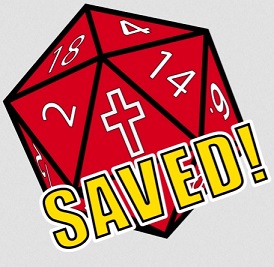This is mark Joseph “young” blog entry #504, on the subject of Why I Started Writing.
Someone named Jay Oluwabukunmi contacted me (via LinkedIn) and wrote:
I recently came across your profile and was highly impressed by the quality of your content. Could you kindly share what motivated you to begin writing?
That’s an interesting question with a complicated answer, so I decided it would be better to share it here.
Scratch a writer and you’ll almost always find a reader. I read quite a bit from a very young age, including a fair amount of science fiction and fantasy, but also mysteries, and the Bible, and quite a bit more. I especially enjoyed C. S. Lewis, J. R. R. Tolkien, and Charles Williams, and had a vague notion of writing the next great fantasy novel. I suspect, though, that I was one of thousands who had that notion, and I wasn’t all that devoted to it–I was a musician, and envisioned my immediate future as heading into Christian contemporary records.
Still, I took a class in college entitled Creative Writing: Fiction, partly because I needed to fill a slot and it fit my schedule, partly because I had this notion that when I retired I might write that novel. I even started working on a novel while I was still in school, although it wasn’t all that good and I abandoned it. However, for quite a few years I maintained, intermittently, the practice of keeping a literary journal. My friend C. J. Henderson says don’t do that because you’re never going to sell such a thing, and you shouldn’t waste time writing something for which no one is going to pay you. However, it is not only good practice, I have more than once remembered something I wrote in those journals and used it to write something new.
Pursuing my music career I got a job on the air of a small but significant contemporary Christian radio station, and eventually became the program director. At some point we compiled a mailing list, and management decided we should send out a monthly newsletter. It became my job to create this, so I wrote a fair amount of the content (my degrees in Biblical Studies helped immensely at this point) assisted by our overnight DJ for a time. I also was introduced to the associate editor of a local newspaper, who liked my style and invited me to write some satire for his paper; two columns were published under the name M. Joseph Young, to avoid confusion with the Mark Young who was on the local radio station (also me).
Along the way I discovered role playing games, specifically beginning with Dungeons & Dragons™ but also playing several others in a variety of genres and settings. Largely through this I was introduced to E. R. Jones, who needed someone who could write (and by this time I had finished a juris doctore, so I could certainly handle the technical aspect of writing) to help create a role playing game on which he had been working for half a decade. We put a lot of work into that, he dropped out of the process before the final edit, but I’d made promises and so I pushed through and published Multiverser: The Game: Referee’s Rules along with Multiverser: The First Book of Worlds. I continued on that line, with Multiverser: The Second Book of Worlds, and along with some people working with me on that (artists, supporters, gamers) we tried to make a go of that.
Then someone came up with the idea of creating a Multiverser comic, and as the in-house writer it fell to me to do the text. I created three characters with two stories for each of them to be the basis for three issues, but then the artists said no, it couldn’t be done with our resources. That fell into the back burner, and then emerged as Verse Three, Chapter One: The First Multiverser Novel. I learned quite a bit about structuring a novel by doing that, and have followed it with more than a dozen additional novels continuing those stories.
I was also writing web pages on a wide variety of subjects, mostly to get attention to sell the game. I wrote about Bible and law, in which I had my degrees, and time travel, which had been discussed extensively in writing the game, and several other subjects, and suddenly one day I felt that I needed to put together a book, What Does God Expect? A Gospel-based Approach to Christian Conduct, because it seemed to me that a lot of people didn’t understand the basics of Christian living. After this, my wife suggested that one of my web pages should be expanded, and that resulted in About the Fruit, and I was now writing Christian non-fiction books. Most of those came from a sort of compulsion, that this needed to be said and I was going to have to say it.
Along the way someone asked me to write a series for a new web site, Game Ideas Unlimited. The site never materialized, but Gaming Outpost grabbed the series for a redesigned site. At the same time I decided that since I had been elected Chaplain of the Christian Gamers Guild I should do something, and so I launched the Faith and Gaming series. That subsequently got published in book form, and then a publisher approached me to release an expanded edition. I was established as a writer in the role playing community.
More recently a publisher contacted me and asked if I would write a book for him, and we agreed that I would create The Essential Guide to Time Travel based on my internet writings on that subject if he would publish my at that time just finished apologetics book Why I Believe, and that established a continuing relationship which got several books back in print and introduced my New Testament analytical commentaries.
I’ve linked several of the books that are still in print. The Multiverser books should be back in print soon; we’ve created a LinkTree which will be expanded as the new material goes online. Other books both in and out of print are listed here.
That’s probably more than Jay wanted to know, but I’ve often said in my mouth all stories are long, and this was obviously going to be a long story. I hope it helps.










